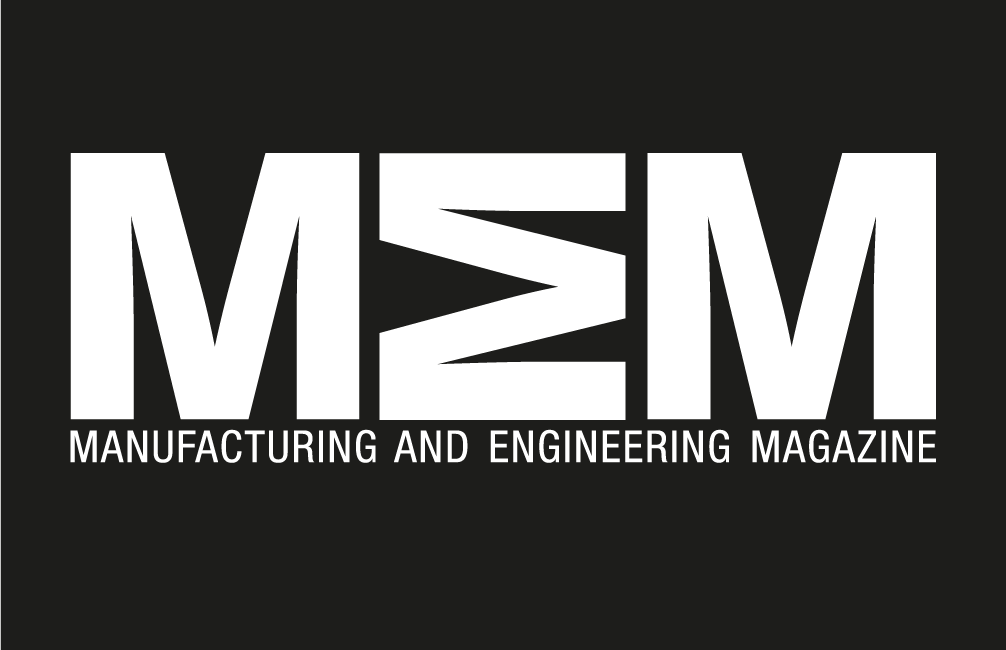PervasID Showcases RFID Capability Examples for Manufacturing

PervasID, an award-winning RFID (Radio Frequency Identification) technology provider, has announced the opening of its new Customer Experience Centre in St. John’s Innovation Centre which will showcase uses for RFID in the retail, healthcare and industrial sectors. The Customer Experience Centre will be aimed at customers, partners, system integrators and prospects to demonstrate the system’s capabilities in real situations and the technology’s 99 percent-plus tag detection accuracy. The Customer Experience Centre will house all PervasID products, including its latest Multi-Ranger, which combines all PervasID systems, namely Space Ranger (wide-area passive RFID system) Security Ranger (anti-theft RFID system) and Portal Ranger (a doorway RFID system), into a multifunctional reader system that is the first of its kind because it overcomes multiple challenges experienced by retailers and other industries from a single integrated solution. PervasID’s Space Ranger & Portal Ranger products address several issues facing the industrial sector. Efficient management of parts and tools, for example, is extremely important in manufacturing because their loss or misplacement can be costly from both a time and expenditure perspective The PervasID solution provides not only an audit trail of items used, by whom, but also the essential regulatory safeguard to ensure equipment is not left in site during maintenance. The Customer Experience Centre will demonstrate everything from where densely packed parts can be automatically booked in and out in real time, as well as tracking any asset, that might be lost or misplaced from warehouses. Dr Sabesan Sithamparanathan, co-founder and CEO of PervasID, comments: “The industrial sector is of huge importance to the UK economy and we understand that the equipment used in manufacturing processes is often business critical. If this equipment goes missing or is misplaced, there is a huge risk to productivity.” He continues: “The Customer Experience Centre will demonstrate the effectiveness of the PervasID products in an industrial settling and highlight the increase in efficiency, compliance and auditing the equipment.” Manufacturing & Engineering Magazine | The Home of Manufacturing Industry News
Building Structure for Aerospace Manufacturer Has Been Announced
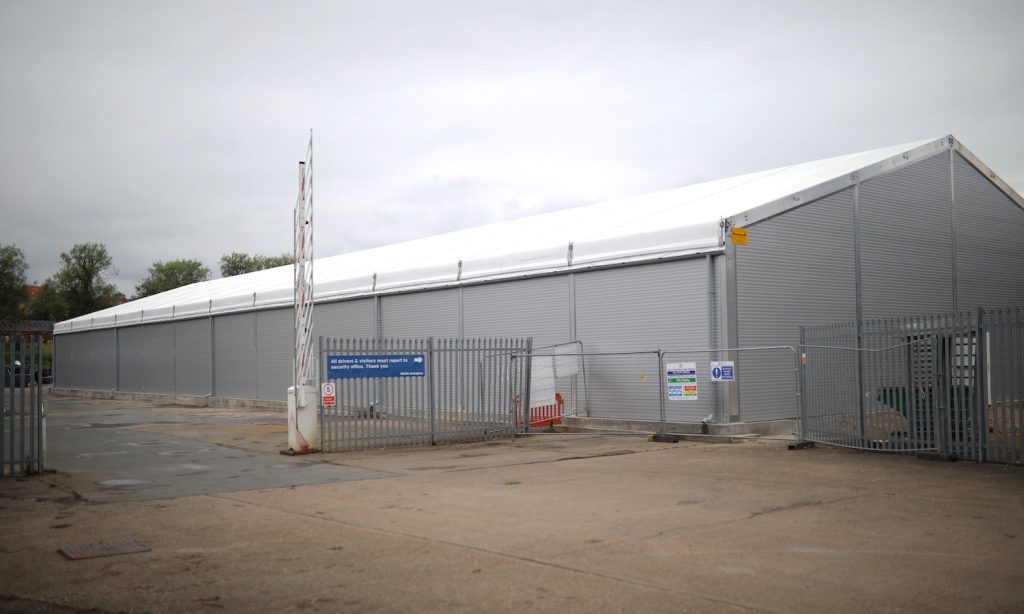
Building Structure for Aerospace Manufacturer Has Been Announced : The building structure of aerospace manufacturer Mettis’ new factory in Redditch, Worcestershire, has been announced. The plans were initially reported back in April, with the next phase of the project involving the installation of six new machines which will be fully automated to run 24 hours a day. The company plans to start trials for the fully automated production of aerospace components later in the year, and aims to enter production in early 2020. The factory will enable the expansion of the company’s machining business, with components being produced using the onsite forges and machines in the factory. This will lead to a reduction in the processing and transporting time for customers. Mettis has built the factory in response to a number of multi-million-pound aerospace contracts that were awarded to the company. The advanced levels of automation will enable Mettis to further reduce lead times for customers. The new factory will be the first new facility of this scale Mettis has built in many years and demonstrates its commitment to manufacturing in the UK, creating jobs and investing in its future. Manufacturing & Engineering Magazine | The Home of Manufacturing Industry News Manufacturing & Engineering Magazine (MEM), is a the leading UK based monthly print & digital publication focused on promoting innovation in manufacturing and engineering available here in the UK. We cover : SUSTAINABILITY (Waste & Water Management, Recycling, Energy); INMOTION (Rail, Marine, Aerospace, Automotive, Defence); INFRASTRUCTURE (Oil & Gas, Nuclear, Construction); Healthcare (Medical), TECHNOLOGY(Printed, Connected, Software, Composite); MANUFACTURING (Chemical, Metals, Plastics, Electronics, Electrical); CONSUMER GOODS(Furniture, Electrical, Electronics, Food) to name but a few. We have over 50,000 views of each issue of MEM on average in 2022 and go to print monthly and also publish in our newsletter, (each issue is available free for 12 months digitally). Our focus is aligned across the next 12 months with our global media partnerships around Trade Events and also contains original content.
New Report by Advanced Engineering Gauges the Voice of Industry
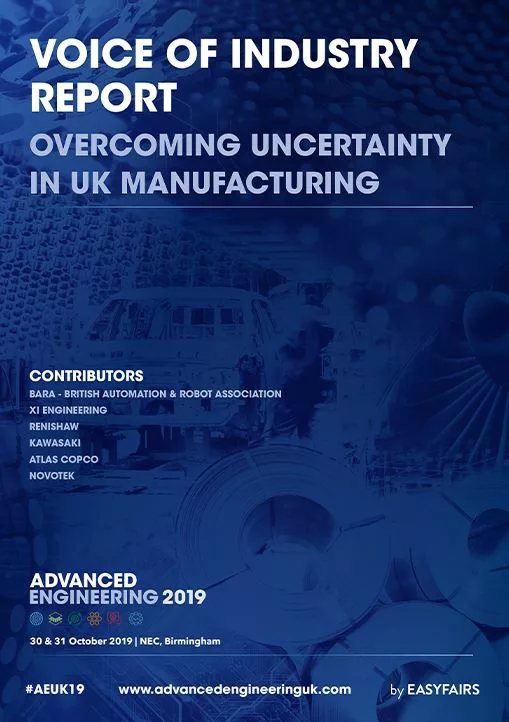
Ahead of this year’s show, Advanced Engineering, the UK’s largest annual exhibition for manufacturers and supply chain professionals, has launched a new report gauging uncertainty in the engineering sector. The report, entitled Voice of Industry, brings together the experiences of leading manufacturers, on topics ranging from Brexit and the skills shortage to the rise of electric vehicles and product innovation. The Voice of Industry report delves into the unique challenges that businesses have faced in the last two years and explores the positive results they’ve had in overcoming uncertainty. It features Q&A-style interviews with senior figures in a variety of engineering businesses including Renishaw, Atlas Copco, Kawasaki Robotics and others. The report opens with a foreword from Mike Wilson, Managing Director of KUKA UK and Ireland as well as Chairman of the British Automation and Robot Association (BARA). In it, Wilson challenges the conventional view that uncertainty should be a fact of life. “The UK is well known as a source of excellence in engineering and innovation. We are the home for leading global businesses such as Rolls Royce and BAE Systems as well as many much smaller, highly creative engineering companies,” explains Wilson. “The current economic climate is uncertain, but I have confidence the resilience of our engineering sector will weather the changing environment and may well become stronger as a result.” The report also interviews one of these smaller companies, Xi Engineering, a digital twinning company that uses its multi-physics simulations to help businesses speed up innovation. “We offer services like simulation that help our customers create accurate models that represent the real world,” explains Mark-Paul Buckingham, Managing Director of Xi Engineering. “These simulations offer a robust test-bed for companies to trial various scenarios that would take much longer if done manually. As a result, we’ve helped companies innovate in a wide variety of sectors, from high-end audio and automotive to renewable energy and transport.” This year’s Advanced Engineering show, which takes place at the National Exhibition Centre in Birmingham between 30–31 October, 2019, will also feature an Innovation Zone. The Innovation Zone will give UK start-ups the chance to exhibit for free, showcasing the latest innovations to the market. To download the Voice of Industry report, or to find out more about what’s on offer at this year’s Advanced Engineering show, visit the website and register your attendance at the show today. Manufacturing & Engineering Magazine | The Home of Manufacturing Industry News
UK Manufacturers Embracing Uncertainty to Build a Brighter Future
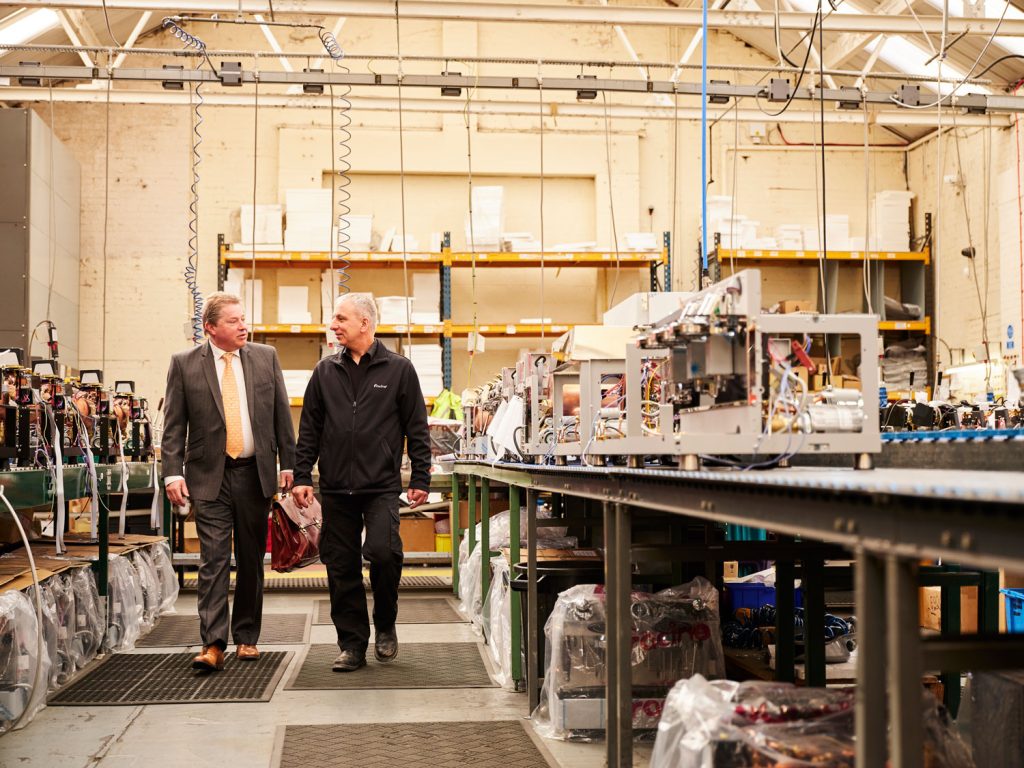
In the recent global state of the nation report issued by Sage, outcomes have revealed that UK process manufacturers are taking confident and optimistic steps towards building a world-leading industry, despite the current political and economic uncertainty in the country. Factors such as Brexit are making it difficult to predict future import-export conditions, which is causing many manufacturers to make new strategic decisions in preparation for growth. Unlike what might be expected, 82% feel confident that their UK home-grown industry will be a world leader as soon as 2025. This opinion shows the sector is treating the current climate of the unknown not as a period of gloom and doom, but more as a motivating force that will drive positive change and continuous improvement. “Contrary to prevailing sentiments about the decline of manufacturing in the UK, our research reveals attitudes are anything but downbeat,” said Sabby Gill, Managing Director UK & Ireland, Sage. “With the Fourth Industrial Revolution gathering pace, we see an industry taking the initiative to equip itself with the technologies and skills it needs to succeed. Half of UK manufacturers, for example, say uncertainty around Brexit is making them more likely to invest in technology as they prepare for possible changes.” So how are UK manufacturers going to build this brighter future? As mentioned by Mr Gill above, many are making significant investments in new technologies that will allow them to gain a competitive edge on the world stage. With the aim of driving productivity, creating better customer experiences and venturing into new markets, emerging technologies will allow businesses to reduce operational costs, increase traceability in the supply chain and automate repetitive tasks. Investment in robotics, IoT solutions and automation is set to make data-driven production the norm within the UK industry. In addition to embracing new tech, UK manufacturers are also working to expand their knowledge and skills. Around 39% believe proficiency in data science and computer science will be critical if UK manufacturing is to remain competitive. It’s also believed that the knock-on effect of regulatory immigration changes will see many manufacturers look outside of their usual talent pools when recruiting new people. Another factor driving the confidence of UK manufacturers is the increasing importance of entirely British manufactured products. Consumers are placing more value on “Brand Britain” goods, demonstrating a preference for home grown items created with locally-sourced and easily traceable materials. This is regardless of the lower prices that are often associated with products built from imported materials, with consumers showing a desire to support and fuel their own economy. Understanding this shift in attitude among UK manufacturers can help others in the sector to plan for uncertainty and take an active, confident approach in planning future growth. Viewing an unpredictable future as an opportunity rather than a threat, will help to guide the strategic decision making that will allow UK manufacturers to thrive. To find out more about the state of the industry, download Sage’s informative manufacturer’s toolkit by visiting www.poweringbritishindustry.co.uk
Three Emerging Technologies to Transform Manufacturing in 2019
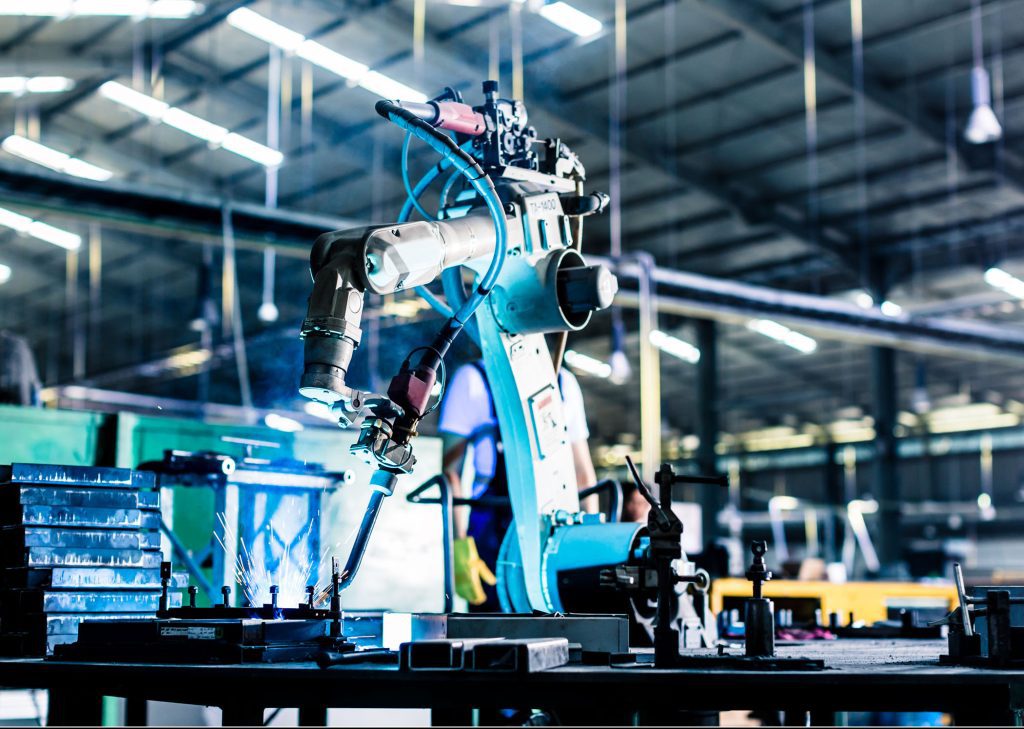
A new report by the World Economic Forum (WEF) has revealed the top ten emerging technologies that have the potential to positively disrupt our economy in 2019. Here Sophie Hand, UK country manager at automation parts supplier EU Automation, discusses the three of them that are most likely to impact the manufacturing sector. Every year new technological breakthroughs promise to transform society as we know it. However, to make the WEF top ten list, emerging technologies have to be much more than innovative — they have to positively disrupt the existing status quo, engage researchers and potential investors, and have the potential to grow significantly within five years. So, what new technologies in the manufacturing sector fulfil these characteristics? Bioplastics for a circular economy Plastics produced from corn, sugar cane and waste oils and fats are listed as the top emerging technology of 2019. Of all the plastic we generate, only about 15 per cent is recycled, while the rest is incinerated, thrown in landfills, or simply abandoned in the environment, where it can remain for centuries. The consequences of the presence of plastics in the oceans are devastating, and range from the destruction of fragile marine ecosystems, to health hazards when microplastics enter our bodies through the consumption of contaminated fish. Biodegradable plastics can help fight pollution, contributing to a circular economy in which plastics are made from and converted back into biomass. A circular economy of reuse, remake, recover can in fact represent a great alternative to the linear model of make, use, dispose traditionally used in manufacturing, helping to minimise waste without compromising on productivity and quality standards. Currently, what prevents a widespread use of bioplastics in manufacturing is their reduced mechanical strength. However, recent developments in producing plastics from cellulose and lignin could help overcome this barrier. Smart fertilisers One of the biggest challenges of contemporary society is that of feeding a growing global population. An answer could come from precision farming, a sustainable approach to agriculture that aims to optimise crop yield using IoT, automation and big data. One example of precision farming is the emergence of controlled-release fertilisers, small capsules filled with nutrients that can sense the acidity, temperature and moisture levels of the soil, releasing their content accordingly. Smart fertilisers allow farmers to overcome some of the shortcomings of traditional fertilisers, which are often harmful to the environment and are not absorbed efficiently by plants. The nutrients in smart fertilisers are better absorbed by crops, which means that farmers will have more yields with less product. Like traditional fertilisers, smart formulations contain ammonia, urea and potash, which can contribute to the formation of greenhouse gases and climate change. However, since less product is needed, their environmental impact is still less harmful than that of traditional solutions. The benefits of smart fertilisers can be increased when used in combination with an agricultural robot, or agribot, which is able to locate individual plants and advice on their nutritional needs. Advanced food tracking and packing About 600 million people a year suffer food poisoning, and since food travels a complex path from farm to table, locating the source of an outbreak can take several days. Meanwhile, more people can get sick, while massive amounts of unspoiled food are thrown away as a precaution. New technologies could help tackle this problem. Firstly, a blockchain-based cloud platform could improve traceability. Thanks to a decentralised accounting system, farmers, manufacturers and retailers can now record all of their transactions on a common blockchain, so that the entire history of a food product is available at a glance. Meanwhile, enhanced food packaging provided with smart sensors could help determine whether the food has been stored at the correct temperature or whether it has begun to spoil.
What Can Food Manufacturers Do to Help Reduce Food Waste?

The UK contributes to seven million tonnes of safe to eat food waste, with the average household in the UK spending £700 a year on wasted food. The leading cause of this is confusion to what date labels on products actually mean. Each supermarket and brand of product uses different labelling and language to indicate the dates, which causes confusion amongst consumers who mistake “best before” as a warning that food is no longer safe to eat past that recommended date, which is not the case. These enormous figures demonstrate the need for change. Here, Darcy Simonis, Vice President for ABB’s Food and Beverage division discusses how food manufacturers can help reduce consumer food waste due to label confusion. Mislead by labels Each year, supermarkets waste almost $300 million worth of food while the hospitality sector wastes an astronomical three billion pounds worth. Common reasons for this waste include damaged produce, it doesn’t meet supplier standards or even that demand is low. The main reason for disposal of safe to eat food is due to misleading date labels, with $16 billion convert to US dollars’ worth food wasted because of this. The most recognised food date labels are “best before” and “use-by”. A best before label indicates that if a product is eaten after the recommended “best before” date, the quality will not be at its best, but it is still safe to eat. However, it’s commonly misinterpreted that the food is no longer safe to eat. A “use by” date on a product is a safety risk and meat, fish and dairy products should all be eaten on or before the specified date. However, labels like “expiry”, “sell by” and “display until” add confusion, despite not affecting the consumer, only the outlet selling the product for stock control purposes. Traceability to tackle waste With millions of pounds worth of perfectly edible food filling landfills, a solution needs to be found. Perhaps one of the simplest is to standardise food date labels across all supermarkets and retail stores. The Consumer Goods Forum (CGF) has approved a Call to Action in an appeal to standardise food date labels worldwide by 2020, with the aim to half food waste by 2030. In the meantime, a way that food manufacturers can help to reduce the cause of food waste, could be to implement traceability software. Traceability allows manufacturers to track and record data of food produced through all stages of production, processing and distribution to the consumer, which could influence how much safe to eat food is wasted. In recent years, the concept of ‘farm to fork’ has become increasingly popular, with more people interested in where their food comes from. If consumers could trace how long ago and where their meat was slaughtered, packaged and distributed, or if they could see what date their milk was produced and which farm it came from, they may reconsider throwing away food that is safe to eat, reducing waste. ABB offer traceability software such as Manufacturing Operations Management suite (MOM), which creates a digital trace of a product by integrating all features into a database. For example, farmers could log all information of their livestock into a central system, including identification number, the age of the animal, what date it was slaughtered or milked, the date of packaging and where it has been distributed. A QR (quick response) code or barcode storing the information could be printed out and applied to the packaging. Once the product is on supermarket shelves, consumers can scan the code to view the product data. With the US contributing to 150,000 tons of food waste every day, it’s vital that food manufacturers support the reduction of food waste and should be compliant with the ISO 22005:2007 traceability standard as a minimum. Standardised date labels and traceability will educate the consumer with more knowledge regarding a products journey and process, meaning that consumers have more information at hand in order to make an informed decision when it comes to wasting food.
Third International Quality Awards Open for Entries

Employees in the manufacturing quality profession are being invited to submit their entries for the 2019 International Quality Awards by Wednesday 31 July. The free-to-enter International Quality Awards, hosted by the Chartered Quality Institute (CQI) in partnership with leading global certification body NQA, celebrate the achievements of exceptional quality professionals and auditors in all sectors around the world. Spanning six major categories, including Emerging Talent Award and Quality Organisation of the Year Award, the International Quality Awards are open to all CQI members and IRCA-registered auditors as well as non-members of the CQI, teams and organisations. This year’s event will take place at a landmark point in the CQI’s history: its centenary. To mark this anniversary, the awards will celebrate the rich and diverse history of the quality profession over the last 100 years. The International Quality Awards provide applicants with an opportunity to showcase their contribution to the quality management profession, inspire others by sharing their stories, and boost their profile in the global quality sector. Last year Khar Voen (Carmen) Chin, PCQI from Alstom Hong Kong Limited, won the Emerging Talent Award for her role in improving supplier training, warehouse audits and the installation of steel bracketry that carried signalling equipment under train carriages. Her work continues to contribute to ensuring the safety of millions of passengers who use Hong Kong’s railway network. Vincent Desmond, CEO of the CQI, said: “In this interconnected world, the quality profession is playing an increasingly important role in safeguarding consumers, protecting the environment and ensuring compliance in global supply chains. It is important, therefore, that we continue to reward quality and auditing talent and to laud their contribution to the future of quality in their organisations and society. “In 2018 we received entries from quality professionals in the Republic of Latvia, Qatar, the United States, the United Kingdom and Australia, to name just a few. We are proud of our global links and reputation and would encourage everyone working in quality to submit an entry – wherever in the world they might be.” The International Quality Awards will take place on 27 November 2019 at the De Vere Grand Connaught Rooms in Central London.
BAE Systems Calls for Nationwide Effort to Develop Skills for Industry 4.0
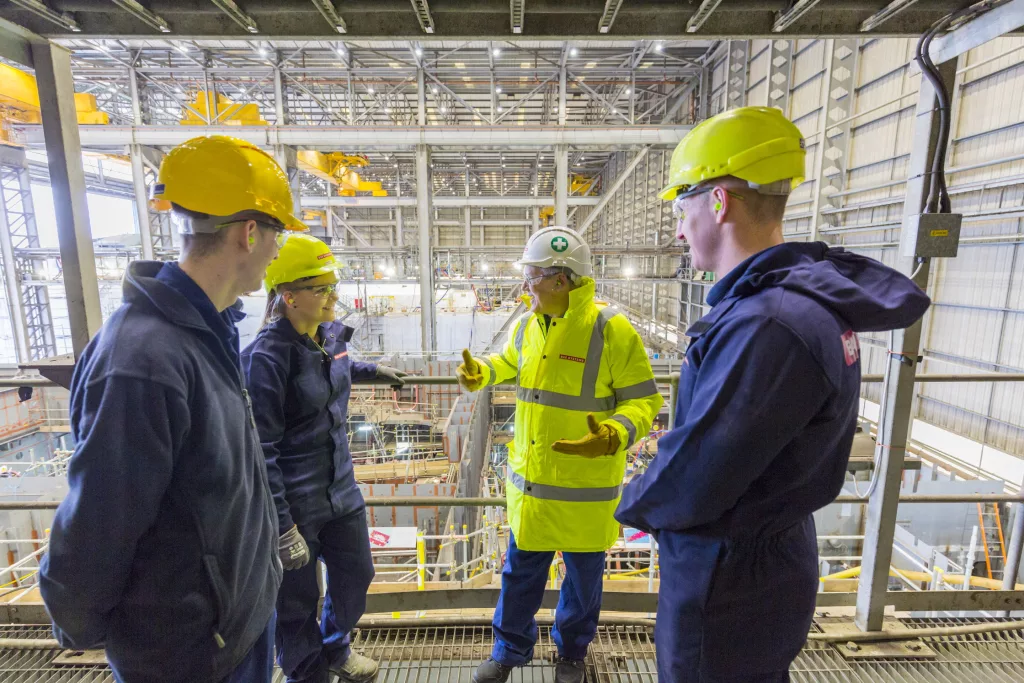
BAE Systems Calls for Nationwide Effort to Develop Skills for Industry 4.0 : BAE Systems has called today for a concerted and co-ordinated effort by industry, Government and the education sector to ensure the UK can fully benefit from the digital revolution and Industry 4.0. Nigel Whitehead, Chief Technology Officer at BAE Systems, stated that defence, aerospace, engineering and manufacturing sectors need to work together and prioritise investment in digital and ‘soft skills’, upskilling and retraining and supporting supply chains and SMEs, to respond to the expected levels of complexity in industrial and business systems and unprecedented demand from technologies such as artificial intelligence, for the Industry 4.0. Mr Whitehead also suggested that businesses in these sectors need to create a more diverse, inclusive and flexible workplace by reflecting different working preferences and lifestyles. To help address the UK’s shortage of engineers, he called for a nationwide programme of activity to improve the perception of science, technology, engineering and maths (STEM) subjects and careers and for the engineering industry to consider recruiting more people with highly applicable skills that traditionally are more associated with arts subjects, such as creativity and problem solving. In its whitepaper – ‘Future Skills for our UK Business’ – BAE Systems sets out six guiding principles for the development of skills in the UK in an environment of rapid technological change and fierce global competition: 1. Create a more diverse, inclusive and flexible workplace for the employees of tomorrow; the UK must attract and retain top class talent; 2. Commit to retraining and upskilling; it is vital for innovation and growth that employees continue to learn throughout their careers; 3. Prioritise investment in digital, soft and behavioural skills; to give the employees the broad range of technical and people skills needed to succeed in the modern workplace; 4. Continue to support suppliers and the SME community so that they can develop skills in the digitally-enabled workplace; successful and innovative partners help the UK economy thrive; 5. Continue to improve the perception of STEM subjects and careers; encouraging graduates and young people into a dynamic and rewarding industry; 6. Continue to champion vocational training; working with Government to ensure training is funded and prioritised. At a launch event hosted at the Company’s state-of-the-art Academy for Skills & Knowledge in Samlesbury, Lancashire, Nigel Whitehead, said: “I am personally really excited by the opportunities in today’s highly connected world and what the future will bring, but we cannot be complacent. By taking tangible action now and capitalising on the ambition of young people coupled with the UK’s traditions and advantages – education, strong legal frameworks, technical innovations and leadership – we can exploit the digital revolution and compete on the world stage.” Joining Mr Whitehead at the event in Samlesbury, Dr Hayaatun Sillem, Chief Executive of the Royal Academy of Engineering added: “Failure to successfully prepare for the impact of technological disruption means we will put at risk our ability to benefit from the opportunities created by digital transformation and other waves of technological change.” BAE Systems invests £90m annually in skills in the UK, providing world-class training facilities for its employees and education to ensure its current and future workforce are trained to the highest standards. At any given time, there are approximately 2,500 apprentices and graduates in training across its UK business. Manufacturing & Engineering Magazine | The Home of Manufacturing Industry News
Xaar Hosts Businesses at Manufacturing Flexibility Workshop
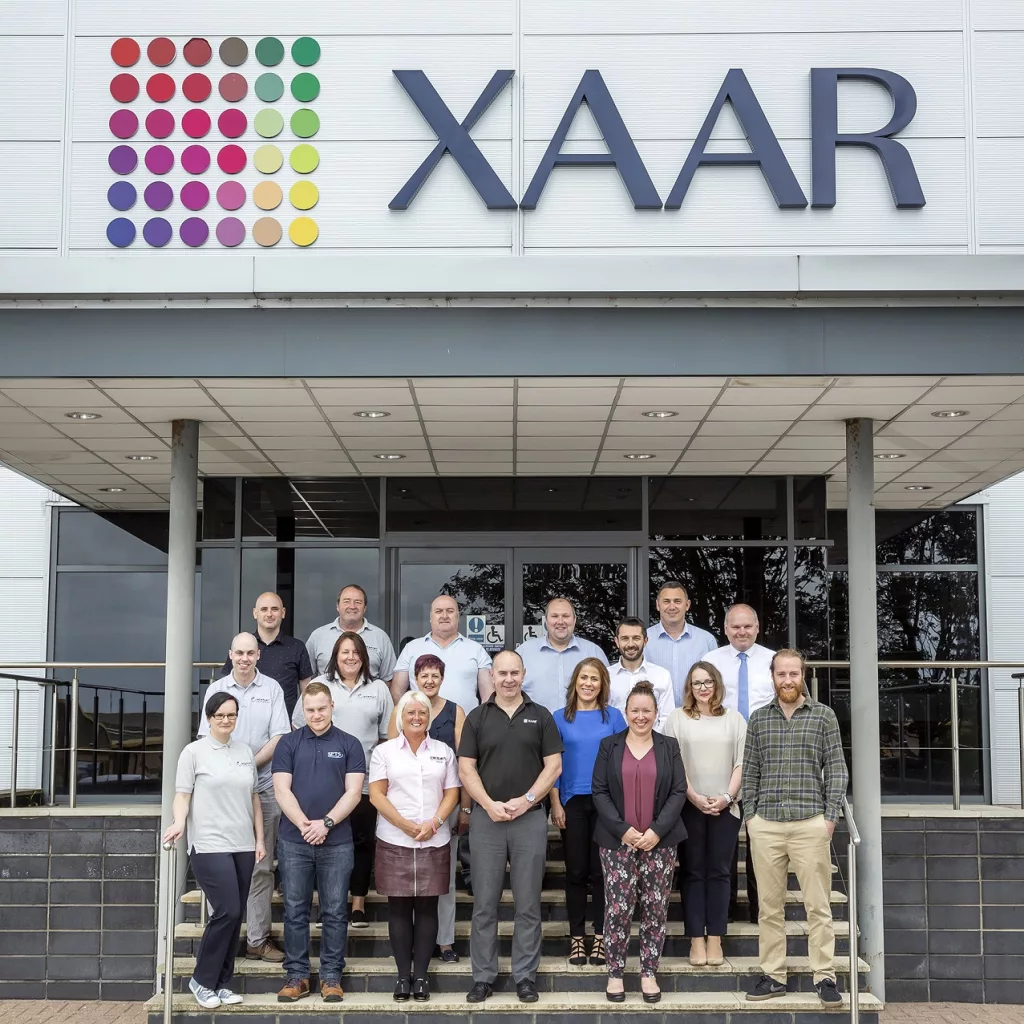
Xaar hosted members of the NMI including Diodes, Ultra CEMS, SPTS Technologies and Newport Wafer Fab at its workshop on ‘Learning and Development for Manufacturing Flexibility’ at Xaar’s Huntingdon site on 18th June. The interactive session highlighted the importance of focusing on people in the overall process, with discussion groups working to define key learning points for the implementation of Manufacturing Flexibility initiatives. NMI champions the role of its member companies in the UK electronics sector, facilitating knowledge exchange. Member workshops are key to the role and as part of this programme Xaar shared its experiences from the processes and changes made in its progression from a single product site to manufacturing a variety of different products. As a world-leader in industrial inkjet printing, Xaar recognised that in order to grow its business it needed to find ways to broaden its portfolio of products and as a result compete in previously untapped markets. The workshop reviewed the concepts traditionally discussed within Manufacturing Flexibility and asked attendees to work together on the challenge of ensuring people have the skills to adapt according to the constantly changing business needs. Leader of the workshop and Continuous Improvement Manager at Xaar, Mark Lamb said, “As a business, developing our Manufacturing Flexibility was fundamental to building our ability to deal with an increasing number of new product variants and enhancing the way people worked. Our workshop has hopefully helped participants define what Manufacturing Flexibility really means, and through our collaboration today, create a collection of ideas and strategies that each organisation can take back for potential progression.” Chris Bennett, NMI’s Director of Manufacturing Services added, “The strength of NMI is its membership and today’s workshop held by Xaar was truly indicative of this. Everyone attending was able to learn about a more holistic approach to Manufacturing Flexibility and share their ideas and strategies as part of a wider group. “I would like to thank Xaar for hosting this invaluable day of learning and look forward to hearing how our members take this information back to their organisations as part of their own development.” Manufacturing & Engineering Magazine | The Home of Manufacturing Industry News
Foundrax Delivers Quality Components for Automotive Manufacturer
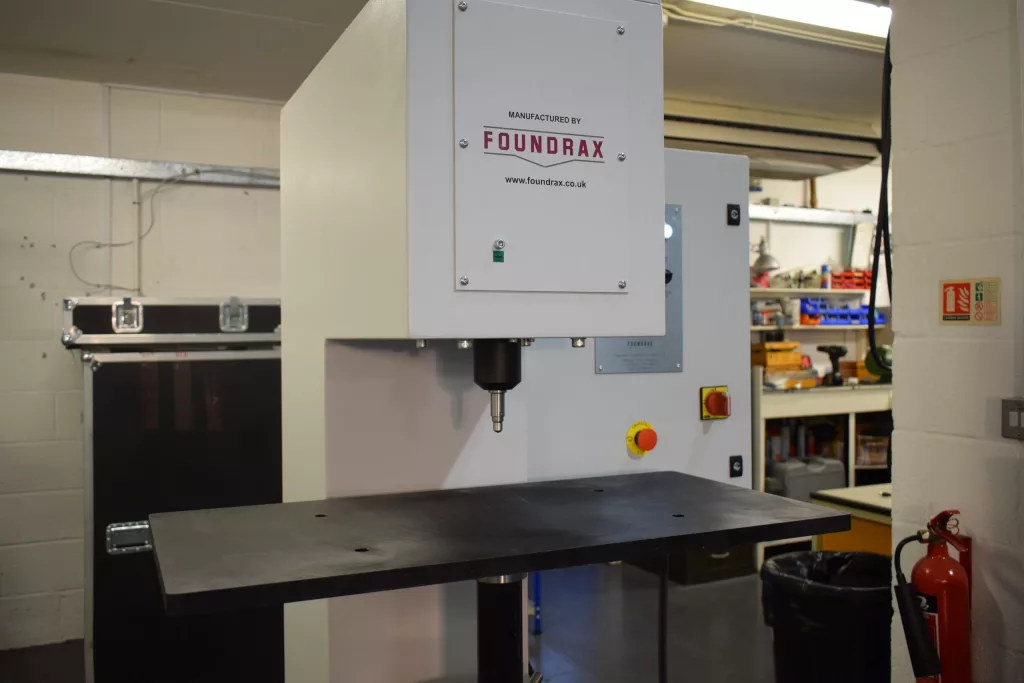
Foundrax, the world’s leading specialists in Brinell hardness testing, has just shipped a second bespoke system for the intricate inspection of automotive suspension components to a full-service supplier of aluminium and plastic automotive solutions in Mexico. The leading supplier of high-quality automotive parts that include aluminium powertrain, structural and transmission components have international automotive manufacturers across the world. Last year, they commissioned Foundrax to address a complex requirement to test suspension parts being produced for a prestigious German car manufacturer. Pioneers in Brinell hardness testing equipment, Foundrax design and manufacture all their own equipment to deliver the highest standards of reliability and repeatability. They are also one of the only companies in the world to offer custom built solutions. This made them the perfect partner for the automotive supplier’s intricate component testing requirement, one that other standard hardness testers on the market simply couldn’t match. The challenge was that the hardness test location as specified by the car manufacturer was in an extremely tight space, hemmed in on three sides by vertical sections and almost no test area to work with. As many of these parts are hollow, there is no other position which would be strong enough to allow for a reliable test. After discussing the options both remotely and on site with the customer, Foundrax solved this challenge by developing a uniquely customised BRIN400B; a rugged, shop floor Brinell hardness tester with customised automatic Brinell microscope to carry out fully automatic indentation and hardness measurement without operator influence on the test or the results. This robust and reliable machine was designed with custom features in the form of an extended indenter in order to access the restricted space and an external BRINtronic microscope with a special narrow nose to enable the customer to measure their indentations. This meant the customer could test exactly where the automotive manufacturer required rather than having to ask for a dispensation to test elsewhere and Foundrax’s solution proved to be a great success. Ultimately, the part design specification effects optimum performance of the vehicle’s suspension. If the material is too hard, the part cracks, too soft and the material bends; so, in either scenario, this is a safety critical test of the component material. Following the successful application of the first machine, the automotive parts supplier went back to Foundrax with an even more complex shaped part to measure. Foundrax commissioned a second system with a bespoke configuration to enable the customer to test in very awkward locations that ensured the highest quality and structural integrity of the suspension component. Alex Austin, Foundrax MD said; “We’re delighted we could fulfil the customer’s requirements. We are always open to making changes to equipment or to making special purpose machines. Our job is to solve the problem and, if required, to give our customers a bespoke product that addresses their need, not simply give them an off the shelf, one-size-fits all, solution.” Offering custom solution components is one of Foundrax’s core USPs and they have done it all over the world, including customers in China, Russia, India, USA and throughout Europe. A modular product design means they can design and build to a customer’s exact requirements. The machines are now being used at this Mexican site as an integral part of the production process in two areas of the factory for quality testing prior to shipping. Foundrax was founded in 1948 with over 70 years of foundry, forge and steelworks experience. They provide hardness testing solutions to customers in 46 countries worldwide and also serve the aerospace, power generation, leisure and construction industries. Manufacturing & Engineering Magazine | The Home of Manufacturing Industry News


